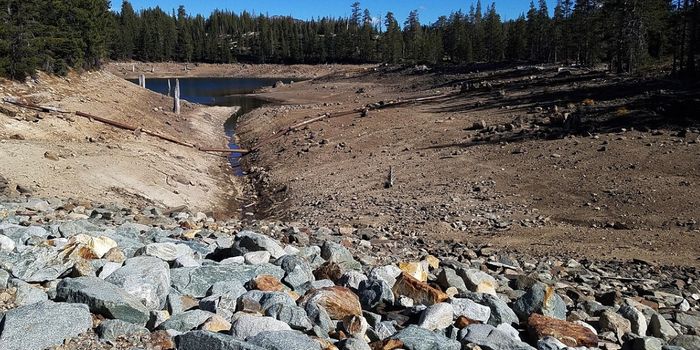Greenland Mountaintop Collapse Triggered Mega Tsunami & 9-Day Seismic Event
A seismic event that lasted for nine days in September 2023 was detected by scientists around the world. Now, we know what happened. Reporting in Science, researchers have shown that a mountain in East Greenland collapsed into the ocean, unleashing a 200-meter-tall (650 feet) mega-tsunami, and causing the seismic waves that were detected around the planet. While no one was injured, an unoccupied research station was damaged.
Climate change is thought to be the cause of the mountaintop collapse. A glacier at the base of the mountain has been melting, causing the structure to destabilize. Eventually, about 25 million cubic meters (33 million cubic yards) of rock and ice fell into the sea.
"Climate change is shifting what is typical on Earth, and it can set unusual events into motion," noted study co-author Alice Gabriel of UC San Diego's Scripps Institution of Oceanography.
This unusual seismic event baffled scientists when it happened. It did not resemble the signals generated by an earthquake, and instead, moved in a rhythm. Seismographs recorded oscillations at 92 second intervals, and this signal remained strong for days. Rhythmic standing waves are known as seiches, but these waves were not diminishing.
Researchers noticed that the signal was detected around the time of a major landslide in Greenland. A team of investigators gathered data from around the world, including satellite images and field measurements. Models were created to simulate and study the phenomenon.
"It was a big challenge to do an accurate computer simulation of such a long-lasting, sloshing tsunami," said Gabriel. The models eventually matched the real world observations of the tsunami's height and seiche oscillations; the team concluded that the seismic event that lasted for nine days had been caused by a gargantuan landslide.
The research has highlighted the significant uncertainty posed by climate change - there are still many unknowns.
"This shows there is stuff out there that we still don't understand and haven't seen before," noted study co-author Carl Ebeling, also of Scripps Institution of Oceanography.
Now that researchers have linked the observations with this real-world event, scientists might now look at historical data to see if there are other events like this one that have happened before. We may also learn more about what conditions can lead to a seiche.
Sources: University of California San Diego, Science










